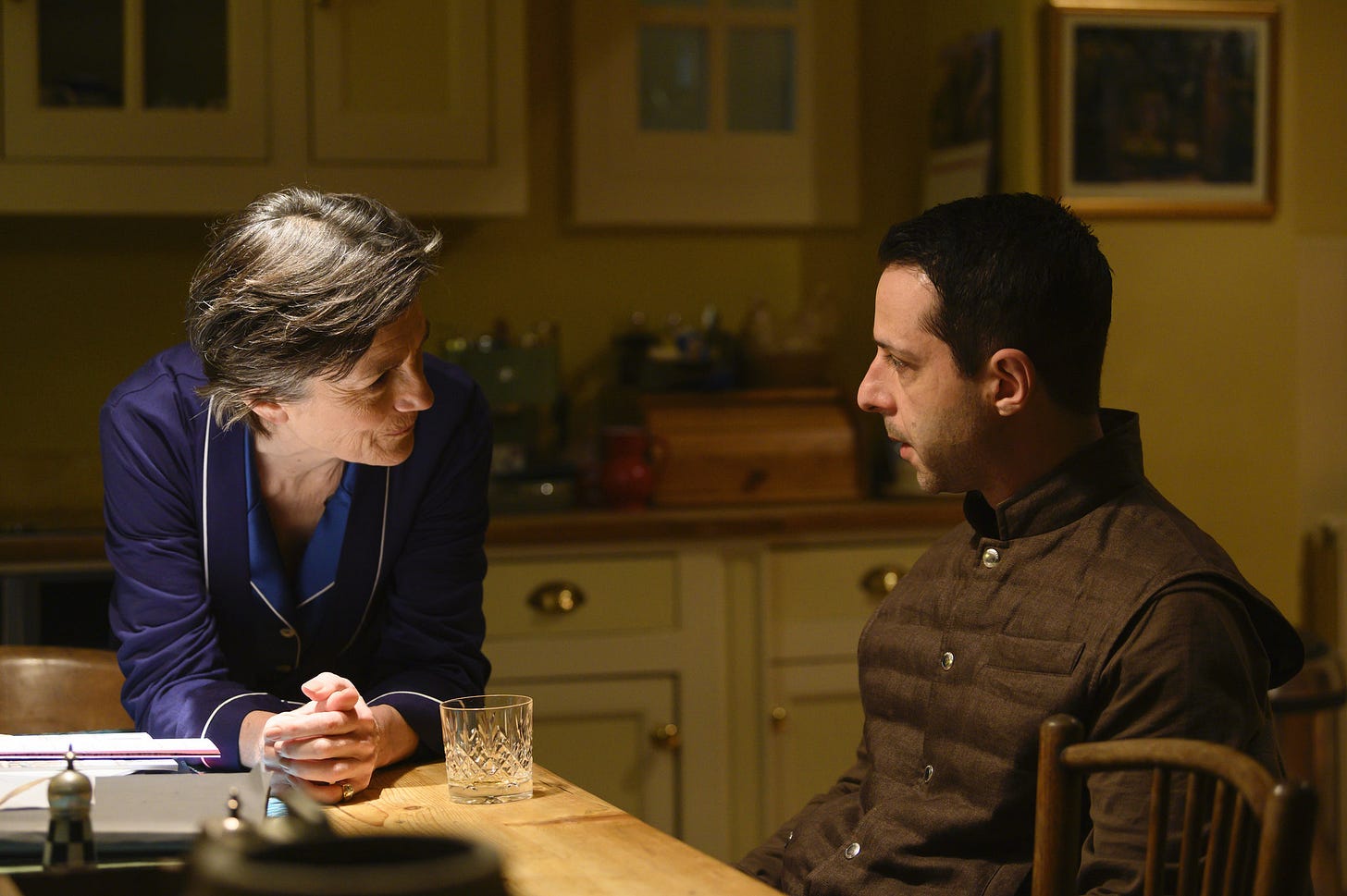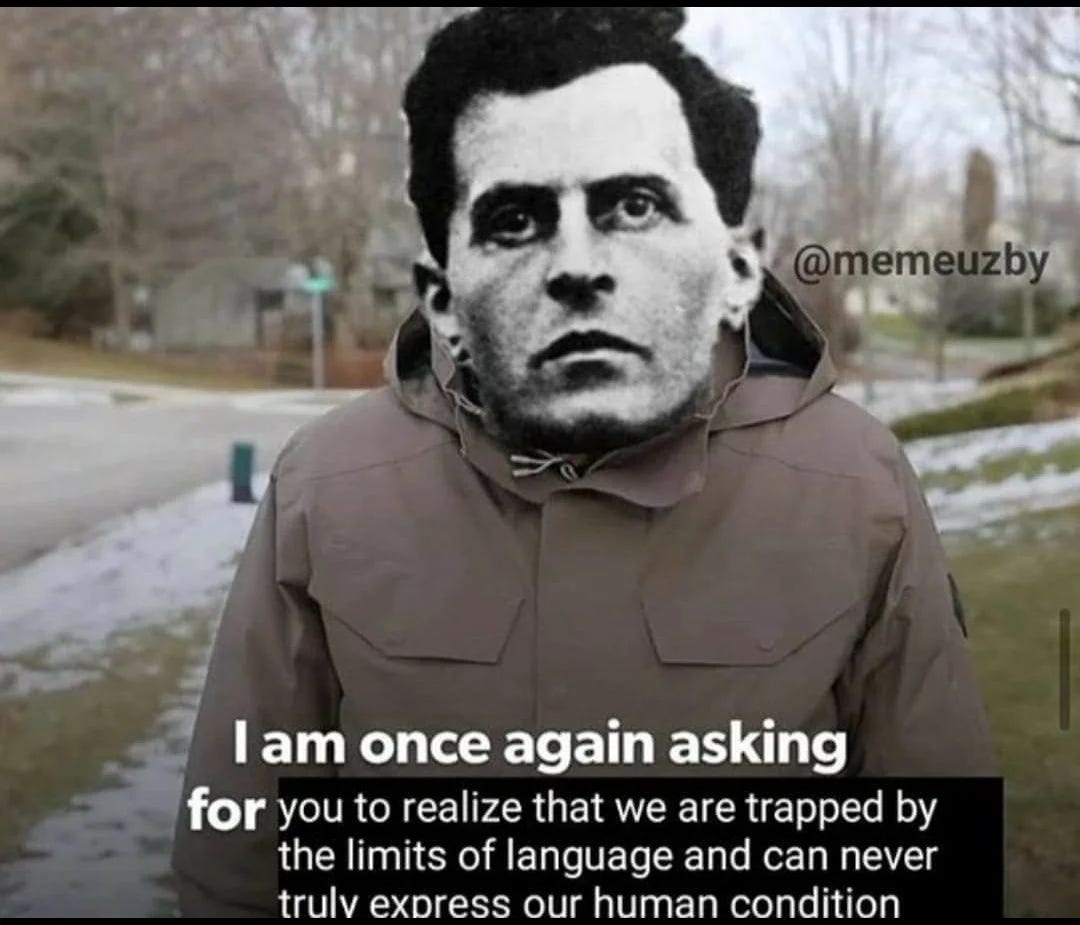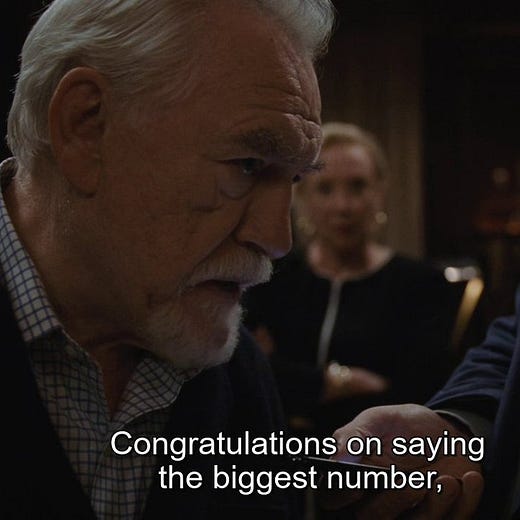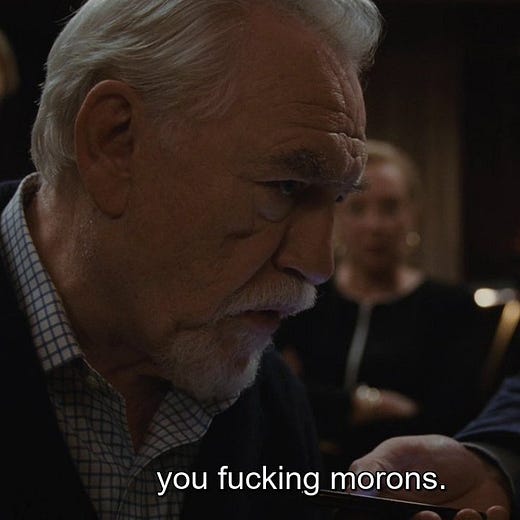The systems are systeming
Language, family systems and the misfortune of the Roy siblings
The responses to my last post made me realise once more the limitation of language, especially for the inexperienced writer.
Last Sunday, I published a feverish writing inspired by reading three pages of the Dharma Bums by Jack Kerouac. I read this one some years ago but this new edition caught my eye and reminded me how great he writes.
The next day I woke up to:
a worried message with a link TO THE BIBLE and several bullet points around how to navigate love
words of encouragement
laughs - oh no! not another newsletter
some getting the dramatisation, some not.
Ludwig Wittgenstein was kind of right, maybe.
Sometimes I’ll speak a language only people in a constructed context will understand. Others will fit it the best they can in their own understanding of the world. Either way, it doesn’t really matter for the purposes of this substack. Take what you need dear reader.
I am interested in writing more about how words make us feel though. What we choose to hear when someone tells us something. How we read the tone, how we get triggered or not.
I’m also intrigued by how we have a hard time expressing what we really feel and how we end up messing up our conversations because of it.
After my first years living abroad I would often get into heated discussions with my siblings. “Why are you away?” “Are you never coming back?” “What happens if we need you and you are not here?”.
For years I would get asked these ridiculous questions and answer in the same ridiculous way, answering them literally, trying to be understood in the intellectual way. Eventually, when I acknowledged that people don’t really know what they feel at times and no longer felt guilty, I would listen to the underlying words:
“We miss you, we worry about you, we are afraid that something happens to you and we are not there”
Some days, I even had the energy to say “Ok, what do you really want to tell me?”. It helped us a lot and although we have tons of work to do it’s always interesting to see how previously unresolved things are now untangled. All because we were finally more capable of bearing the weight of the underlying feeling. Not being afraid of it.
Lastly, I’d like to write about the way we create languages within the systems we belong. How much it hurts when we can’t use the same words or a way of speaking we used with someone we loved and is no longer part of our lives. Inside jokes, inside meaning of words.
Taking family systems for example - won’t talk about romantic love this time.
The way each member speaks to each other can tell you a lot about their dynamic.
“My second son is the smart one but my oldest son is the one that keeps everyone together” will repeat the parent, unaware (or aware/subconsciously aware) of establishing the roles of the family system. The careers and path of each son are now being shaped. One or both sons will eventually start experiencing some sort of mental disorder (light or severe) which will probably be their only hope to get in touch with their true selves. Some manage to embark on this process, some go midway, some eventually get out on the other side. The effort it takes could probably power up Earth for a hundred years.
Adler however says that we choose to use this as an excuse to not be our true selves, avoid real life, avoid truth. Either way, in my experience, a system’s force is just too powerful. Healing oneself can be difficult without recognising that one is interconnected with a larger system, understanding one's fundamental role in it and acknowledging how that role keeps showing up in all aspects of one's life.
Anyway, enough with the wobbly stuff.
Came Monday night and I was so ready to put the inside torment I’ve unleashed with my decision to make my writing visible. Succession’s Season 4 was on. It’s time to see if the Roy siblings are going to get some help after all and that’s why we won’t need more seasons. What would Succession look like if the Roy’s family system wasn’t toxic AF anymore?
If you haven’t seen Succession here’s my lazy attempt to a summary:
A tragedy/comedy/parody of a narcissistic media mogul who deals with the power game attempts of his kids to gain his love and approval while they all get driven around by chauffeurs, board jets and do ridiculously expensive people things. All dressed in über classy, to the point, wardrobe. They exchange insanely good and ultra fast speed dialogue that is both entertaining and deceiving - you don’t have time to think about what’s really going on.
Logan Roy, grew up poor, developed into a filthy rich person, becoming kind of a sociopath along the way. His children, Connor, Kendall, Shiv and Roman run in circles, constantly vie for his approval, exchanging roles: the golden child, the scapegoat, the lost child.
There are no boundaries but there are a lot of secrets, rampant manipulation, emotional strangulation and abuse. Nothing is felt and nothing is said as it is. Decisions are made based on instinct, all in an effort to maintain the existing power dynamics within the family.
Ridiculous amounts of money make this even harder for the Roys, they have a billion - no pun intended - ways to soothe their anxiety. They are never pushed to really deal with their misfortune, not even when their relationships outside the family system fall apart. The family's wealth has given them the ability to live in a bubble, insulated from the consequences of their actions and avoid facing the uncomfortable truths about their lives.
A mega clear example of retaining the family system at all costs came with that first episode of Season 4. Spoilers ahead.
After three of the siblings decide to tell Logan to fuck off, there is a period where they are trying in their own silly ways to differentiate. They decide to build their own company - The Hundred - and I guess although still trying to prove something to daddy they are at least separated from him.
Well, not so fast. There’s an opportunity to jump back to the never ending fight by buying another media company that their father would love to get his hands on, just to piss him off or get back into his life actually. They tell some excuses to themselves and the youngest one, Roman, kind of tries and fails to resist.
They get a momentary win and satisfaction that they now *really* pissed their dad. Maybe he’ll now take them seriously.
Ha! It won’t last. Well, I guess we’ll see in the next episodes.
In the long run though, the kids won’t abandon their roles. When Logan dies, their family system will take another shape but will probably be very similar. Some of the four will become the new Logan or a milder version of them. The system will prevail. Unless they decide it’s not serving them any longer. That wouldn’t make a great show though.
There’s a lot of layers and depth to the different relationships of Succession but the core system is basically very familiar already to quite a lot of people.
With my friend DLo we jokingly say, “this or that family is like the Roys but without the cash.” Family systems theory helped me understand that most stories are not so unique. We are all just experiencing textbook material.
When we look at such a family system, the role of the other parent is also quite interesting. They might not be a clear narcissist themselves but their emotional immaturity is matching the other’s emotional immaturity. You’d hope that the kids have at least one of the parents to rely on. That’s sadly not usually the case. They will probably take on a victim role, pretend that they are better than the narcissistic parent but most probably fail to provide any support to their kids. They don’t know how. They are exceptions of course and different types of dynamics for these cases.
One of the most striking scenes for me in Succession is when Kendall after fucking up real big this time, tries in some way to talk to his mother Caroline. Trying to get some emotional support, trying to share a burden.
It’s so painful to see how hard it is for her to be there for him. How awkwardly she avoids him. She promises to keep talking over an egg the next morning. That never happens. Poor Kendall, really.
I urge you to find out the roles you play within your systems, see if they are serving your true self or the relationships around you. Your family system might not be as fucked as the Roys but it’s worth a shot for a chance in living a relatively honest, happy life.
Ok, now that I converted LunchPoems into a self help substack here comes the recommendations.
Series I loved as much as Succession for their ways they make you want to embark on explaining more psychological interpersonal stuff are the Industry (millennial edition drama), Mad Men and The Sopranos. Anything as good as those (or better) that I should see?
Finally, some readings if you need the real deal about the topics mentioned and not the lazy version of mine.
Thinking in systems by Donella H. Meadows & Diana Wright
The Courage to be disliked by Ichiro Kishimi & Fumitake Koga
The Art of loving by Erich Fromm.
Adult Children of emotional immature parents by Lindsay C. Gibson.
Bowen Theory's Secrets: Revealing the Hidden Life of Families by Michael E. Kerr.
Strangers to Ourselves: Discovering the Adaptive Unconscious by
Timothy D. Wilson (highly recommend!)
Eros and Pathos: Shades of Love and Suffering by
Aldo Carotenuto (also highly recommend!!)
Slouching Towards Bethlehem by Joan Didion.







